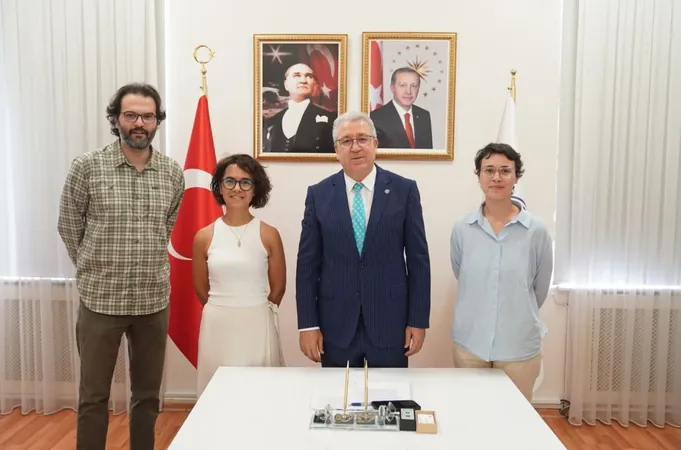
Turkish Scientists Set Their Sights on Lunar and Martian Tomato Farming!
2024-12-26
Author: John Tan
Turkish Scientists Set Their Sights on Lunar and Martian Tomato Farming!
In an astonishing scientific endeavor, researchers from Türkiye’s Ege University are pioneering efforts to grow tomatoes on the Moon and Mars, a groundbreaking project that could revolutionize food systems for future space colonies.
Led by the visionary Associate Professor Rengin Ozgur Uzilday from the Faculty of Science, this ambitious project is backed by Türkiye’s Scientific and Technological Research Council (TUBITAK) under the prominent “1001-Scientific and Technological Research Projects Support Program.”
Transforming Extraterrestrial Soil for Harvest
The project, aptly named “Improving Lunar and Martian Regolith Simulants for Agriculture Using Extremophilic Pioneer Plants and Investigating Stress-Response Signaling Pathways in Plants Grown on Regolith Simulants,” tackles the daunting challenge posed by regolith—the barren, nutrient-poor soil found on both the Moon and Mars.
Uzilday emphasizes the necessity of enhancing this inhospitable soil to allow for successful plant growth. The researchers are focusing on uncovering the molecular mechanisms that allow plants to endure and flourish under extreme extraterrestrial conditions, which could pave the way for sustainable agricultural practices beyond Earth.
Unlocking the Secrets of Space Farming
The primary goal of the study is to elucidate crucial signaling pathways associated with nutrient deficiencies in tomatoes cultivated within regolith simulants. This innovative research could provide foundational data vital for future attempts to cultivate food in outer space, marking an unprecedented step in agricultural science.
A Legacy of Space Exploration
In an encouraging remark, Ege University Rector Prof. Dr. Necdet Budak praised the research team’s efforts, recalling that one of Associate Professor Uzilday’s previous projects had also been executed in space by Türkiye's first astronaut, Alper Gezeravci.
As humanity stands on the brink of interplanetary colonization, the implications of this research extend beyond mere agriculture; it could be a crucial step towards sustaining life on other planets. Who knows? The next time you bite into a juicy tomato, it might just be a product of interstellar farming!
Stay tuned as we follow this exciting journey that could change the way we think about food and survival in space!

 Brasil (PT)
Brasil (PT)
 Canada (EN)
Canada (EN)
 Chile (ES)
Chile (ES)
 España (ES)
España (ES)
 France (FR)
France (FR)
 Hong Kong (EN)
Hong Kong (EN)
 Italia (IT)
Italia (IT)
 日本 (JA)
日本 (JA)
 Magyarország (HU)
Magyarország (HU)
 Norge (NO)
Norge (NO)
 Polska (PL)
Polska (PL)
 Schweiz (DE)
Schweiz (DE)
 Singapore (EN)
Singapore (EN)
 Sverige (SV)
Sverige (SV)
 Suomi (FI)
Suomi (FI)
 Türkiye (TR)
Türkiye (TR)